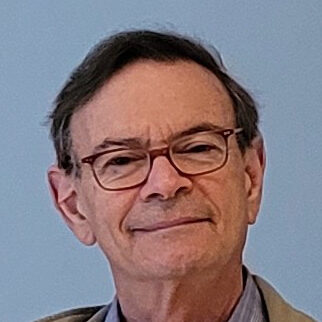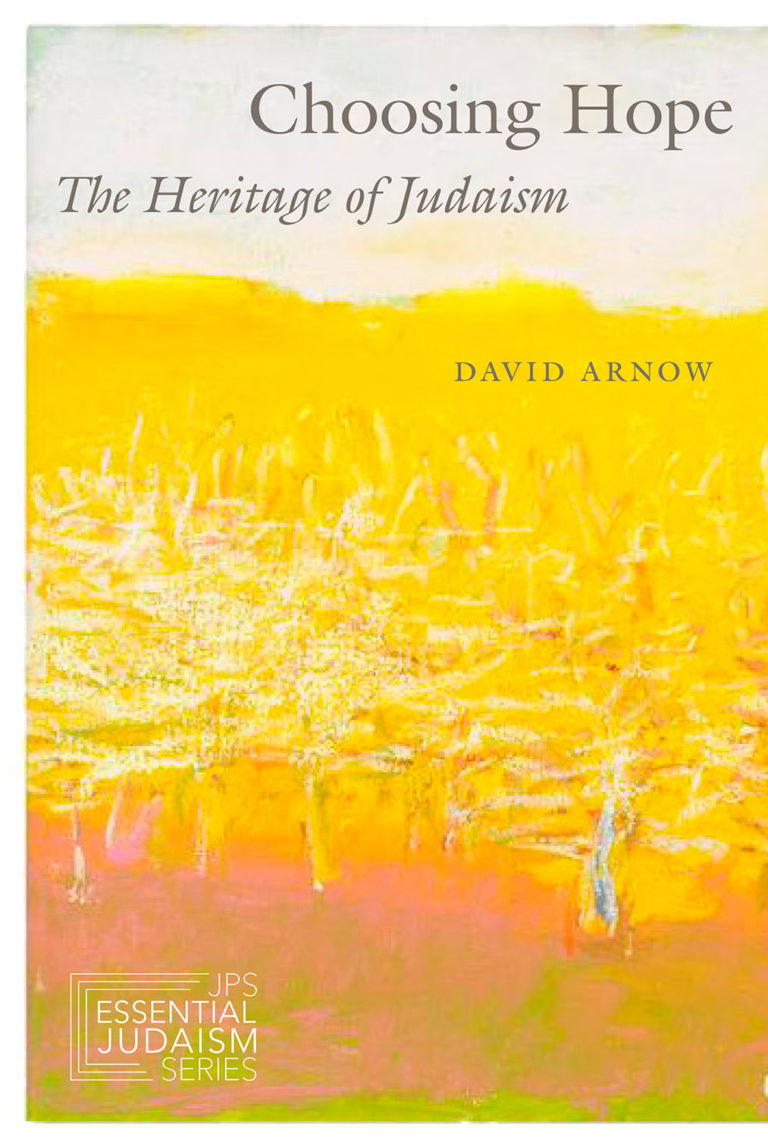A Letter from God on Tikvah, Hope
By David Arnow
Published in These Holy Days: A High Holidays Supplement After October,
Academy for Jewish Religion, August 2024.
My Dear Children,
Oy! Such a year this has been for you and Me. I have seen everything and share your horror. I have heard your pleas that I have mercy on those who are in captivity and “bring them from darkness to light, from oppression to redemption.”[1] Your ancestors too brought their hopes to me praying that I would speedily fulfill them. My prophet Jeremiah wrote of Rachel weeping for her children who are gone and of My promise that “they shall return from the enemy’s land. And there is hope for your future.”[2] But all these things—I look in hope for you to bring about.
When I created you in My image, I gave you virtually unlimited power to envision the future you want and the power to work with others to build it. That power is called tikvah, hope. When I created the world, I hoped that it would be good. And it was. What I left unfinished; I hoped you would complete.
From the beginning I have watched. I hoped you would fashion a world that would truly befit habitation by images of God. Often you seemed to forget that was the task I put before you. But I will never give up My dream that one day you will succeed. Then I shall dwell among you.[3]
Until that day comes, when you pray to Me, lay your hopes out before Me. Bring your hopes to Me, not for Me to fulfill, but to give you an intimation about which are beneath you and which are truly worthy. Because it’s often not easy to discern between hopes that are ultimately life-affirming for yourself and the world and those that only pretend to be. But this I have seen: when you sow your hopes in hatred you will only reap more bloodshed in the world.
As you pursue your better hopes, I’ll be rooting for you. You might sense this when you feel more energized. That’s what My prophet Isaiah meant when he said, “…Those who hope to God shall renew their strength as eagles grow new plumes: they shall run and not grow weary, they shall march and not grow faint.”[4]
Alas, Isaiah exaggerated as My prophets sometimes did. You will grow weary. When you do, remember David’s words that you repeat morning and night through this season of t’shuvah: “Hope to God, make your heart strong and bold, and hope to God.”[5] Sharing your hopes with Me in prayer is a process. Hope begets strength which enables action which begets more hope, strength, action and so on.[6]
Your hope and perseverance will also be renewed by remembering past trials you’ve overcome. Hope’s road to the future rests on those memories. That’s why so many of your prayers to Me evoke the Exodus. But you err when you give me all the credit. If all those brave women hadn’t defied Pharaoh, maybe a leader like Moses would not have arisen to take you out of Egypt. So, remember what wondrous hopes you can achieve by working together—in those days and in these.
During a drought My prophet Jeremiah called Me Mikveh Yisrael, “Hope” or “Pool” of Israel.[7] He wanted you to know that despair feels like a drought of hope. Water sustains the body; hope nurtures the soul. When despair looms, pool your inner resources, gather your memories of surmounting past trials and work with others so that together your hope shall triumph over despair.
Al kein ekaveh lachem, therefore I will hope to you, My Children, soon to see your majestic glory l’takken olam, to repair the world under the sovereignty of Shaddai,[8] because, she’dai, it is enough:[9] My loved ones, you have been hating one another long enough.
Finally, in dark times like these remember that tikvah is like a line, a kav, that connects you to Me.[10] We are joined by the hopes we share. When you labor to bring your best hopes to life, I am with you. Moses wrote about My strong hand and outstretched arm. But I don’t have hands and arms: you do.[11] Use them to make our hopes come true. Build a world where all people can live in dignity, then none shall make you afraid.[12]
Shannah Tovah, Shannah shel Tikvah, A Good Year, A Year of Hope
Mikveh Yisrael
David Arnow, a psychologist, is the author most recently of Choosing Hope: The Heritage of Israel.
[1] From Acheinu Kol Beit Yisrael, “For All Our Family of the House of Israel,” a prayer traditionally recited during the morning service on Mondays and Thursdays when the Torah is being prepared to be returned to the Ark. Since Oct. 7th it has often been recited or sung as a prayer for the release of the hostages.
[2] Jeremiah 31:15, 17. These verses appear in the Haftarah for the second day of Rosh Hashanah.
[3] A slight modification of Exodus 25:8.
[4] Isaiah 40:31.
[5] Psalm 27:14.
[6] Joseph Albo, Sefer Ha-Ikkarim, trans. Isaac Husik, (Philadelphia: The Jewish Publication Society, 1946), vol. 4, part 2, 464, 466, 470.
[7] Jeremiah 14:8 and 17:13.
[8] A slight modification of words from the second paragraph of the prayer, Aleinu.
[9] Etz Hayyim (NY: The Rabbinical Assembly and United Synagogue of Conservative Judaism, 2001), p.89 and Midrash Tanchuma, Lekh Lekhah 25.
[10] The connection between kav and tikvah (line and hope) was made by medieval Kabbalists including Menachem Recanati (Commentary on Numbers 21:2) and Joseph Gikatilla (Sha’arei Tzedek 7b). It was further developed by the circle of Moshe Chayim Luzzatto in Ma’amar Kivoui (often attributed to Luzzatto but likely composed by his disciple Yekutiel Gordon).
[11] Paraphrasing Lawrence Kushner, God Was in This Place, and I, i Did Not Know (Woodstock, VT: Jewish Lights, 1991), p. 122.
[12] Leviticus 26:6 and Micah 4:4.
Get 40% off when ordering Choosing Hope from Jewish Publication Society! Use promo code 6AS22.

